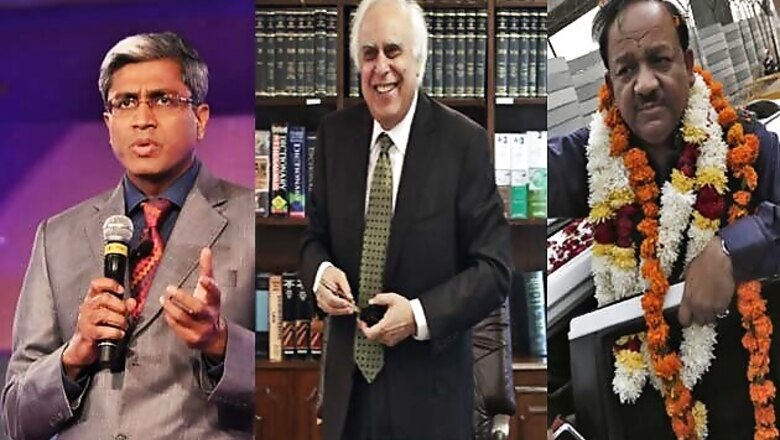
views
New Delhi: Elaborate arrangements have been made and security tightened at the seven centres, housing over 20,000 EVMs, to ensure peaceful counting of votes in the national capital.
A two-layered security cover has been put in place at the counting centres across the city.
While a platoon of paramilitary force forms the inner circle of security inside each of the counting centres, Delhi Police are ensuring their safety from outside.
Number of policemen outside each building has also been increased on Thursday and personnel from the Reserve Forces of the Delhi Police will be on standby to manage the party workers outside the counting centres.
Each counting centre will have 10 rooms for each Assembly constituency. Delhi has a total of seven parliamentary constituencies.
"Postal ballots would be counted first. After a gap of 30 minutes, the EVMs would be opened. Assistant Returning officers (AROs) will oversee the postal ballot counting.
"As per the Election Commission regulations, there will be 10 micro observers deployed in each parliamentary seat and an Assistant Electoral Registration Officer (AERO) will be deployed in each counting table," Delhi's Chief Electoral Officer Vijay Dev said.
In the past one week, Dev visited each of the seven counting centres to take stock of the arrangements.
Mobile phones and other electronic gadgets have been banned at the counting premises, but election officials can use laptop or other devices to transmit results.
Barring the counting supervisors, micro observers and persons authorised by the Election Commission, no one else would be allowed to enter the counting centres. The media will also be barred from entering the counting centres.
The entire counting process would be videographed, Dev said.
The Congress had won all the seven seats in 2009 Lok Sabha polls. The exit polls have predicted 5 to 7 seats for BJP this time.
Over 20,000 EVMs, which hold the fate of 150 candidates in Lok Sabha polls, have been kept under high security in strong rooms at seven centres across the city.
Delhi registered a high voter turnout of 65.09 per cent in the Lok Sabha polls held on April 10.
In the prestigious Chandni Chowk constituency, Union Minister Kapil Sibal was pitted against BJP's Harsh Vardhan and journalist-turn-politician Ashutosh of AAP.
In East Delhi, incumbent MP Sandeep Dikshit faced a tough fight from BJP's Mahesh Giri and AAP's Rajmohan Gandhi, the grandson of Mahatma Gandhi.
The high-profile New Delhi constituency had witnessed a fierce battle between Congress General Secretary Ajay Maken and two first-time contenders -- BJP's Meenakshi Lekhi and Ashish Khaitan from AAP.
In North West Delhi seat, BJP's Udit Raj, AAP's Rakhi Birla and Congress' Krishna Tirath were in the fray.
In South Delhi, BJP candidate Ramesh Bidhuri was pitted against Devender Sehrawat from AAP and Congress' Ramesh Kumar.
The BJP had fielded Bhojpuri singer Manoj Tiwari in North East Delhi seat where AAP's Anand Kumar and Congress' JP Agarwal were the other prominent contenders.











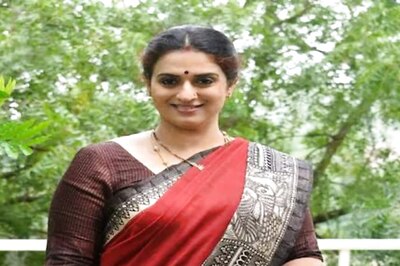




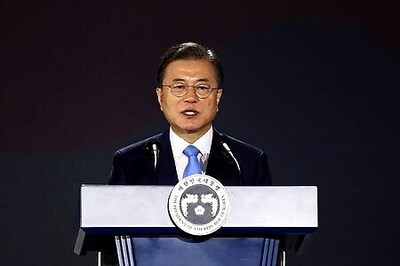
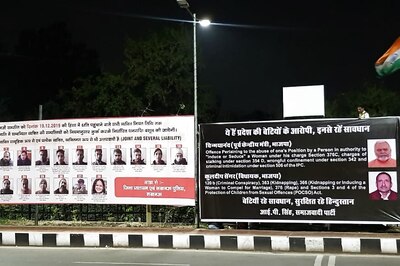

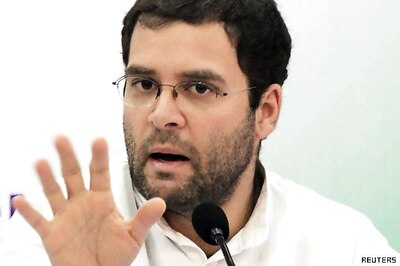
Comments
0 comment